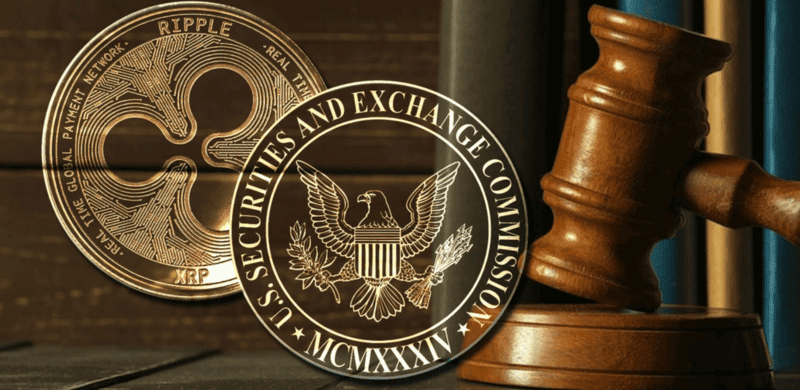In a surprising twist of events, the U.S. Securities and Exchange Commission (SEC) recently decided to drop its charges against two prominent Ripple Labs executives, Brad Garlinghouse and Chris Larsen. This legal battle has been at the forefront of the cryptocurrency industry, and its implications are far-reaching. In this article, we will delve into the intricacies of the SEC’s decision to dismiss the charges against the Ripple executives, the ongoing SEC v. Ripple lawsuit, and the valuable insights offered by expert Adam Cochran regarding the concept of “programmatic sale.”

The SEC v. Ripple Lawsuit: An Overview
The SEC v. Ripple lawsuit has been an ongoing legal showdown, unfolding in the United States Southern District Court of New York. Initiated in 2020, this lawsuit saw the SEC accuse Ripple, a well-known blockchain developer and the creator of the XRP cryptocurrency token, of engaging in an unregistered securities offering. The agency contended that Ripple had raised an astonishing $1.3 billion in 2013 through the sale of XRP tokens, which was deemed an unregistered security offering.
On the other side of the legal battle, Ripple argued vehemently that XRP should not be categorized as a security. They drew support from previous statements made by an SEC director, presenting their case as a significant challenge to the regulator’s stance. The case took a significant turn in July 2023 when U.S. District Judge Analisa Torres made a crucial ruling.
Why the SEC v. Ripple Case Carries Weight
The SEC v. Ripple case has sent shockwaves throughout the cryptocurrency sector, especially at a time when blockchain projects were operating with minimal regulatory oversight. It represented a prominent example of a securities regulator taking action against an initial coin offering (ICO). Both the SEC and Ripple celebrated partial victories in this lawsuit.
The SEC acquired jurisdiction over sales to institutions, and the ruling allowed exchanges to facilitate cryptocurrency transactions, emphasizing that such transactions on exchanges do not constitute securities transactions.
SEC’s Case Against Ripple
The heart of the SEC’s allegations against Ripple was the claim that Ripple, alongside its executives Brad Garlinghouse and Christian Larsen, conducted the unregulated sale of securities valued at over $1.3 billion. The SEC argued that Ripple failed to fulfill the requisite registration documentation, a vital requirement for companies seeking to raise capital from the public in the stock market. The regulator’s lawsuit also contended that Ripple had created an “information vacuum,” sharing only selective information when it suited them.

Adam Cochran’s Insights
Adam Cochran, a recognized expert in the cryptocurrency space, provided valuable insights into the SEC’s motivations. Cochran emphasized that the SEC’s interest extended beyond Ripple. He highlighted that their primary concern was not merely about Ripple but rather about preventing the programmatic sale judgment from setting a substantial precedent.
Cochran’s remarks on the matter were clear, “XRP spokespeople were unwise to quickly label this as a ‘surrender.’ The SEC’s focus is not on Ripple itself, but on ensuring that the programmatic sale judgment does not stand.”
Final Thoughts
The SEC’s decision to drop charges against Brad Garlinghouse and Chris Larsen marks a pivotal moment in the ongoing SEC v. Ripple case. This lawsuit has not only offered insights into the legal status of cryptocurrencies but has also emphasized the SEC’s determination to regulate the cryptocurrency industry.
As the cryptocurrency industry continues to evolve, it’s crucial for both regulatory authorities and blockchain companies to find common ground that encourages innovation while ensuring compliance with the law. The world of cryptocurrencies will undoubtedly keep a keen eye on further developments in the SEC v. Ripple case and its potential ramifications for the industry as a whole.

[…] – SEC’s other case: Ripple Executives’ SEC Charges Dropped […]